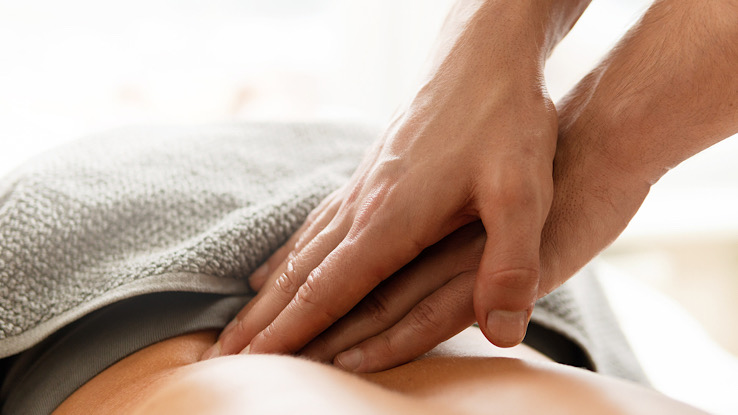How to Cure Funny Bone Pain

If you are like more than 25 million adult Americans who have chronic pain every day, you know it is a big problem. It can significantly impact the quality of life that a person has. For some, chronic pain can be so severe that it can lead to depression. In many cases, you cannot cure chronic pain, but you can manage it so that the pain is not the focus of your daily life. Here are ten ways to manage chronic pain.
Medication is usually the first line of defense for those with chronic pain. There are many pain relievers available; some are over-the-counter, while others require a prescription from your doctor. They range from acetaminophen to opioid painkillers, which are habit-forming, and you should only use them when necessary. The type of pain you have will determine what medications your doctor recommends.
Hypnosis
Clinical hypnotherapy is a form of deep relaxation and selective concentration. Hypnotherapy is as helpful in adolescents, especially in the short term. Hypnosis is initially done with a qualified therapist, though, over time, therapists can teach those with chronic pain to hypnotize themselves.
Relaxation Training
Relaxation training works with several different methods. The technique that has received the most study and researchers recommend is mindfulness-based stress reduction (MBSR). A therapist works with you to learn techniques that allow you to control your pain. You become aware of physiological processes you usually might not be aware of, such as heart rate or muscle tension. There are other methods of relaxation training, including progressive relaxation and autogenic exercises. Talk to your doctor to determine which is best for you.
Biofeedback
You can try biofeedback, which is when a therapist uses computers or other machines to give you feedback about how your body responds to stress. It works well with headaches or pain in the spine as the spine can cause muscle tension, leading to muscle fatigue. Over time, people can learn to use the techniques without feedback from the computer.
Massage

Massages for pain is a therapy that has been around for thousands of years and involves the manual manipulation of the skeletal muscles to relieve pain and encourage relaxation. You can use several techniques based on the session's goal, and some are more intense than others. A licensed massage therapist should perform all massages. Depending on your needs, the sessions will last from 15 minutes to two hours or more. It can help with immediate pain and help relax you to relieve anxiety and stress.
Acupuncture
Acupuncture has been a staple in ancient Chinese medicine for thousands of years. The principle is that energy pathways within the body can become blocked and cause problems that are relieved by fine needles. There is some evidence that acupuncture is effective at helping to manage chronic pain. The method may be helpful for immediate pain relief but not long-term.
Homeopathy
Homeopathy uses plants, animals, and minerals to cure health problems. The principle is that "like cures like," which means that if the botanical will cause the pain, then it will also cause the body to cure it in a low dosage. There is some evidence to suggest that it is effective, though researchers are still not sure how. Researchers believe that homeopathy is safe overall, but you should still talk to your doctor before using it to manage chronic pain.
Aromatherapy
Aromatherapy uses the sense of smell and plant-derived oils to promote healing and pain relief within the body. The sense of smell can be powerful because it is the only sense that links directly to the brain without going through the central nervous system. There is evidence to suggest that aromatherapy is effective when it comes to chronic pain. You can use certain essential oils in a variety of ways. They can be burned in an oil burner to scent an area or used in massages and acupuncture to help relieve pain.
Music Therapy
Some studies show that music can help relieve chronic pain. Music therapy is being used more and more in hospitals, nursing homes, and hospice settings. Though most studies don't mention the type of music used, actively concentrating on the music is the key. The reason is that the same brain pathways responsible for processing the music are also responsible for processing pain signals. Music therapy can help reduce heart rate, relieve stress, and help with breathing.
Healthy Lifestyle
A healthy lifestyle is a must for anyone who experiences chronic pain. The reason is that the body can better cope with pain when it has all the nutrients it needs. Exercise is also vital, not only to a healthy lifestyle but also to managing chronic pain. Exercise helps keep bones, joints, and muscles loose and robust and stimulates endorphins which are natural pain relievers.
There is no "one size fits all" approach to chronic pain. Some of these treatments will be effective for a person, while others won't be. It's important to keep trying until you find something that works for you and remember that you can combine many of the techniques on this list. For instance, you can get massages if you are also on medication, plus everyone should be living a healthy lifestyle to make their treatments more effective. This combination of techniques can prove to be the key to managing chronic pain.
Resource Links
- "Chronic Pain" via Mayo Clinic
- "Mindfulness-based stress reduction: a non-pharmacological approach for chronic illnesses" via North American Journal of Medical Sciences
- "Aromatherapy With Essential Oils (PDQ®)–Patient Version" via National Cancer Institute
- "Chronic Pain: In Depth" via National Center for Complementary and Integrative Health
Source: https://www.symptomfind.com/healthy-living/manage-chronic-pain?utm_content=params%3Ao%3D740013%26ad%3DdirN%26qo%3DserpIndex
0 Response to "How to Cure Funny Bone Pain"
Post a Comment